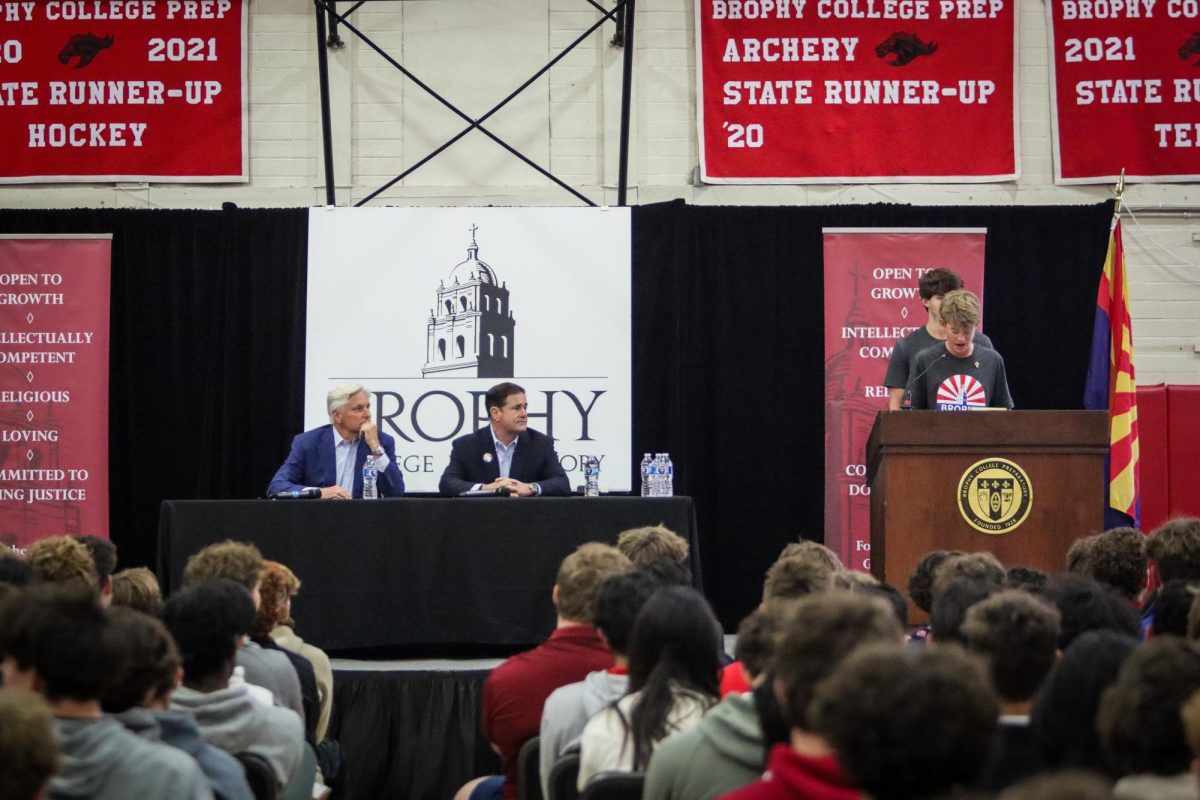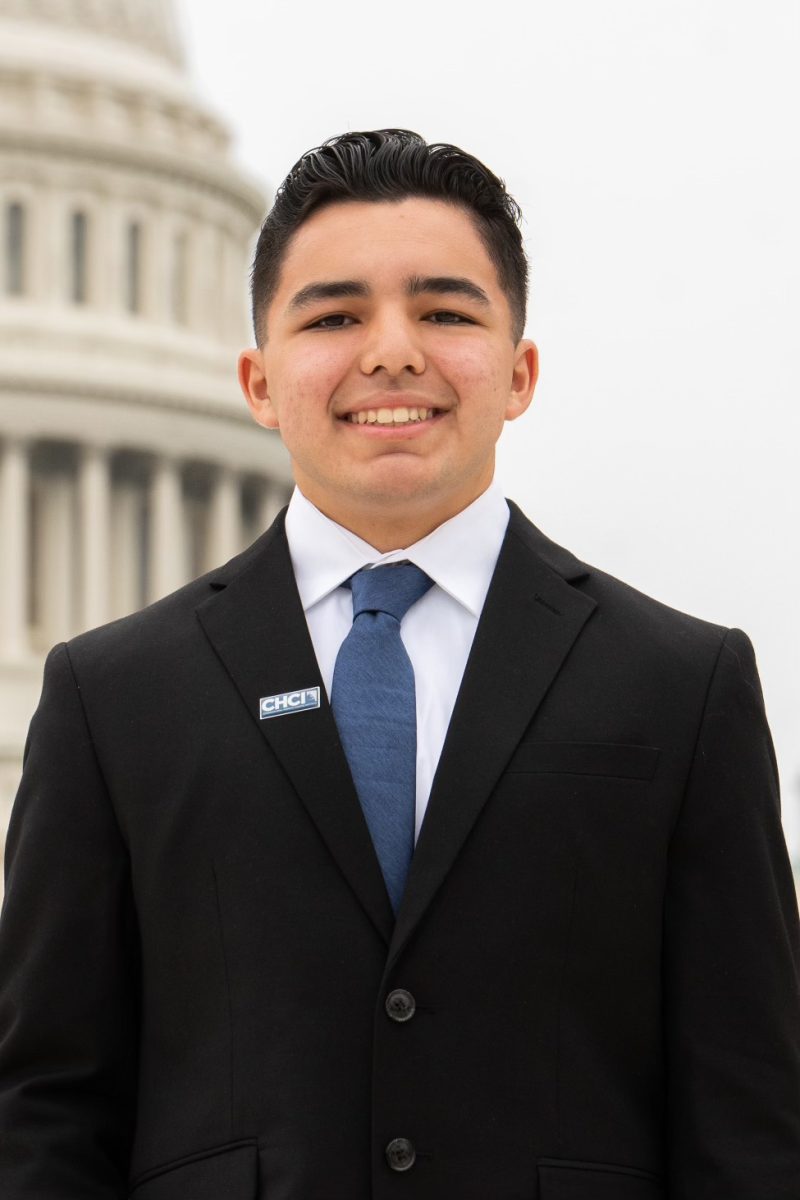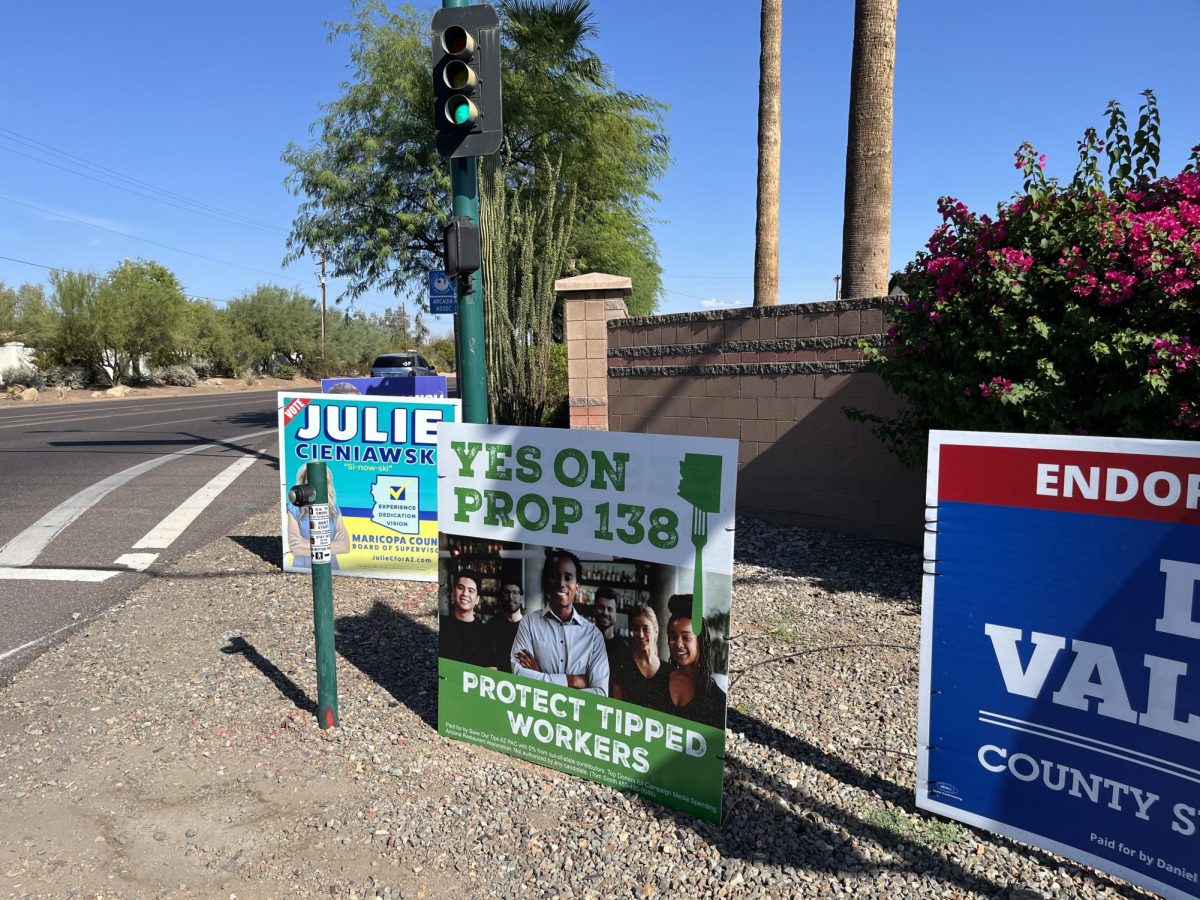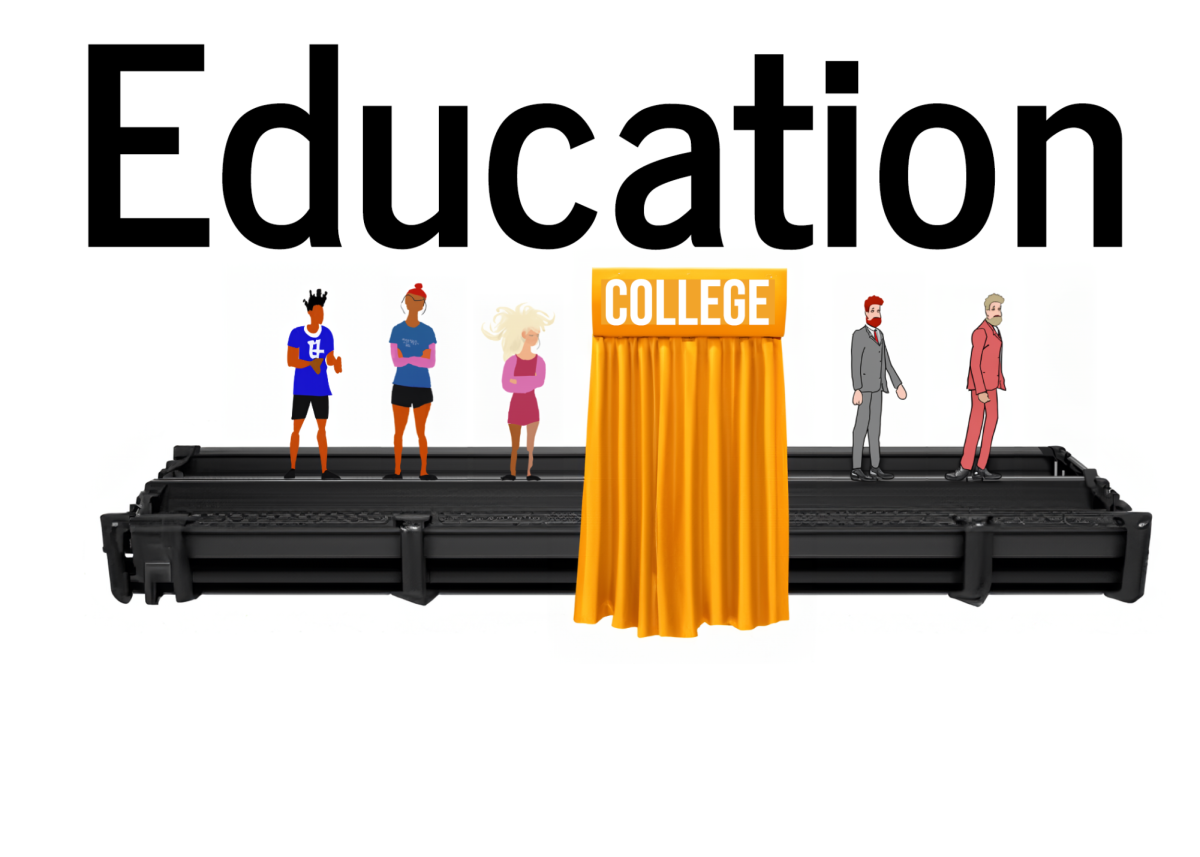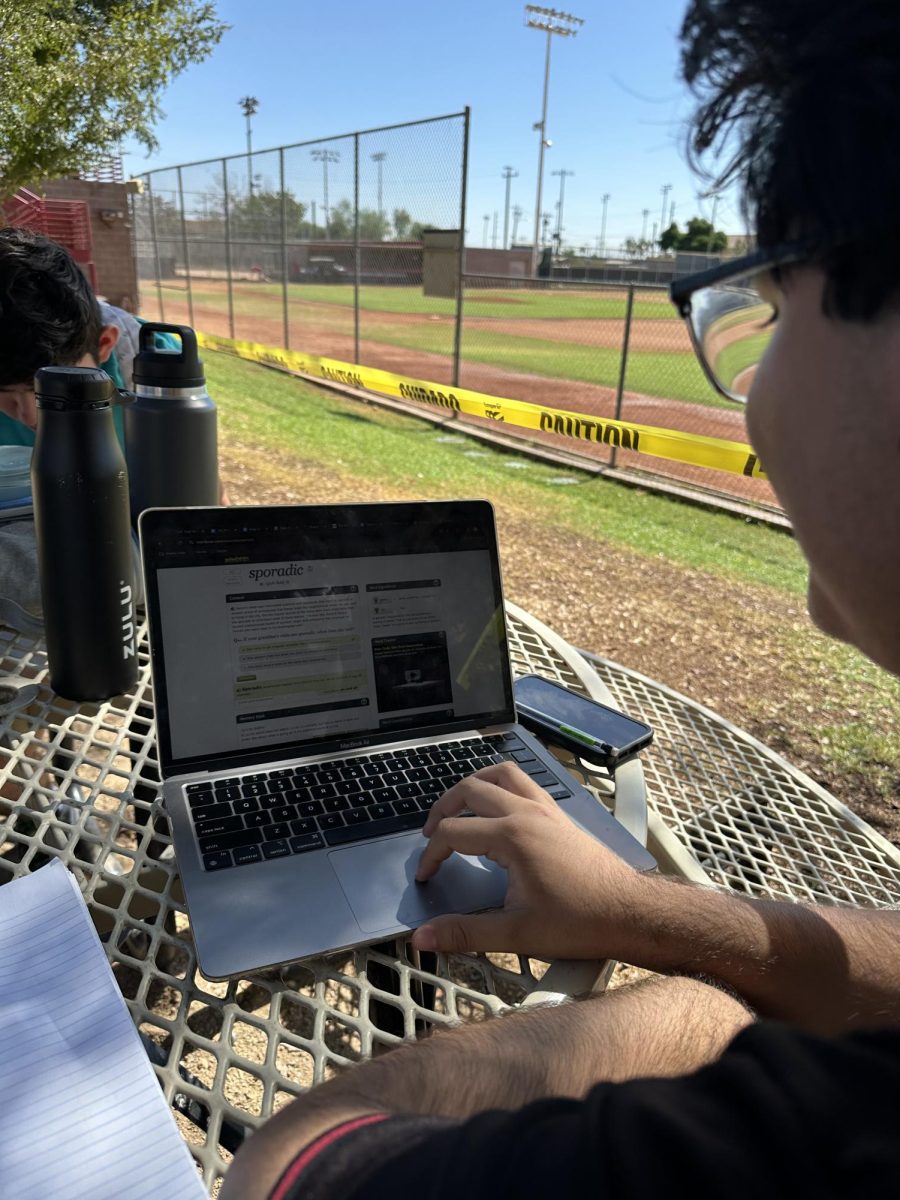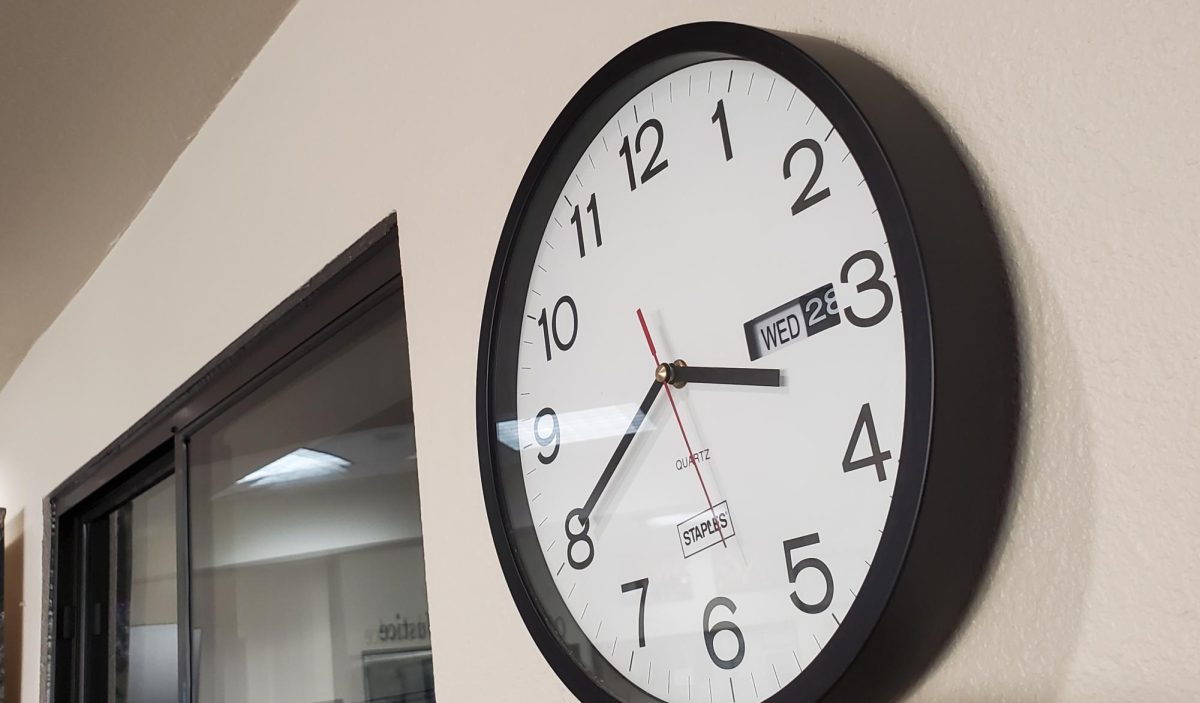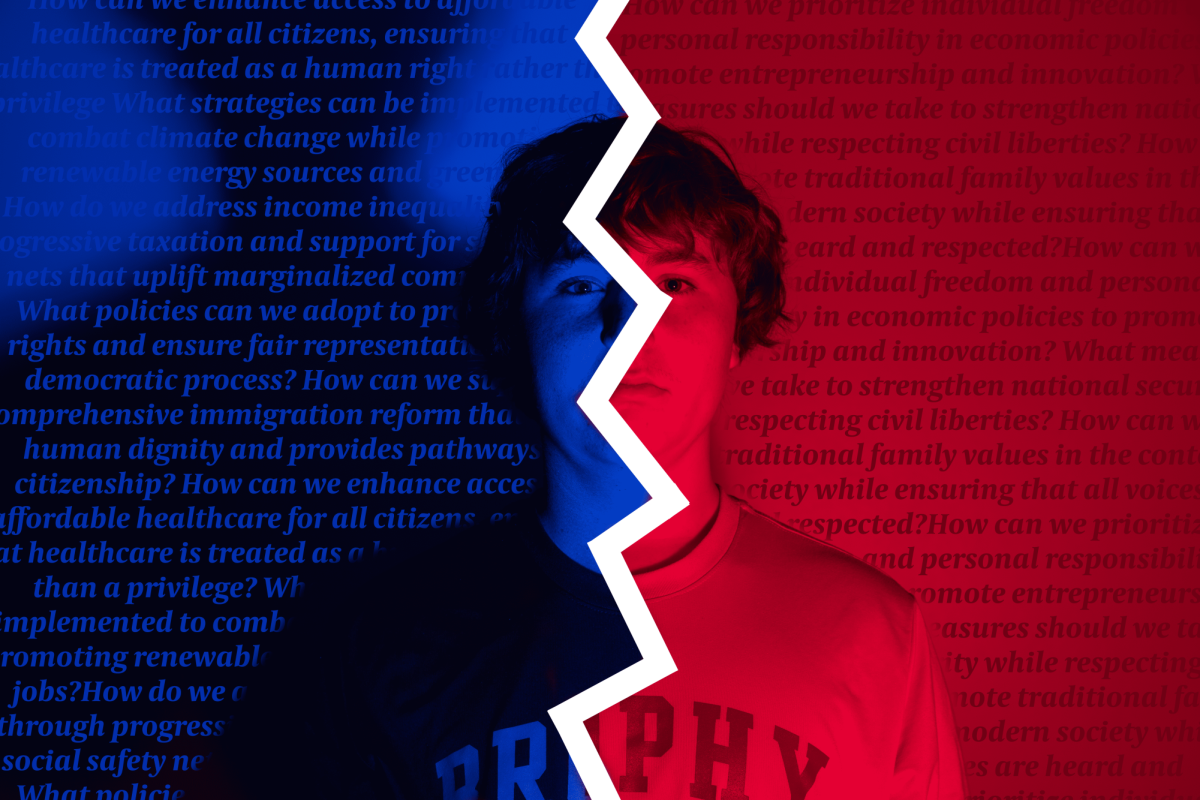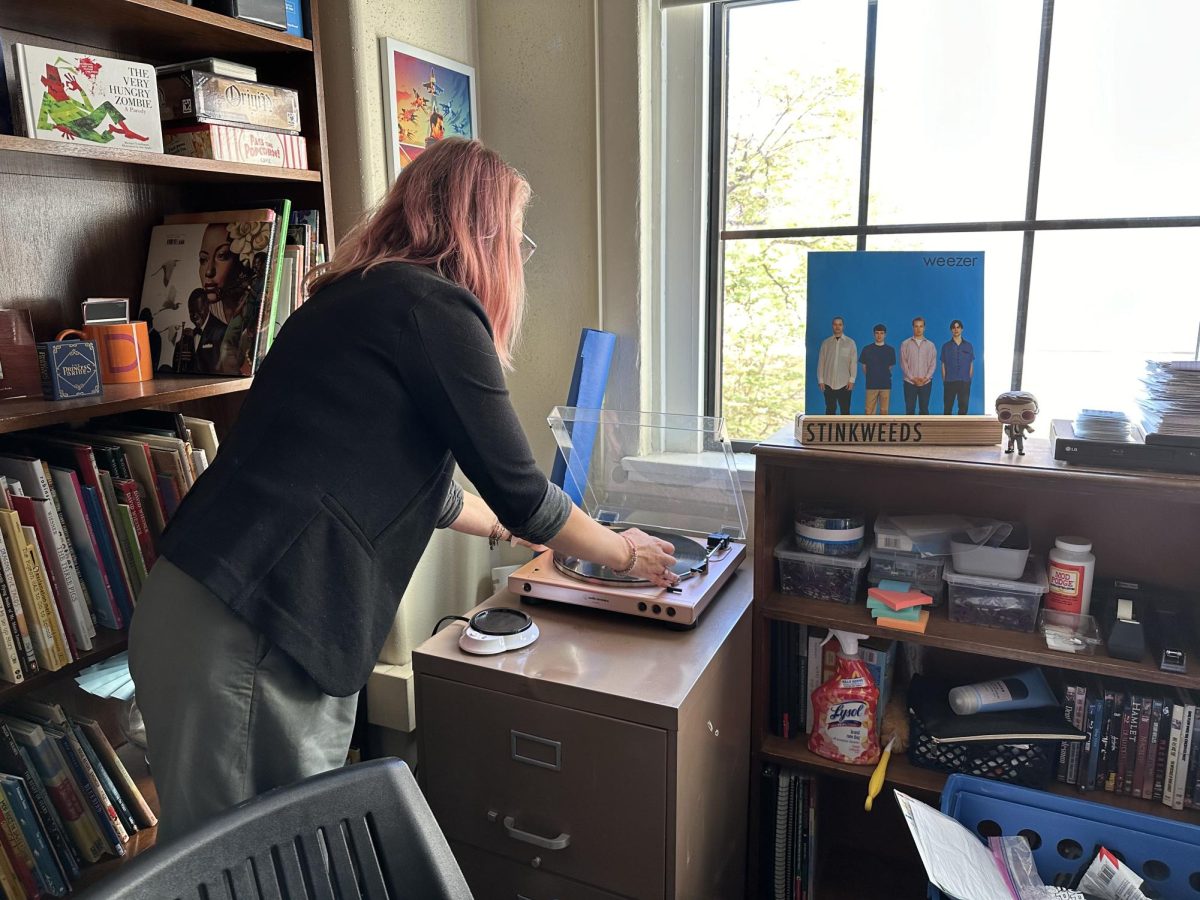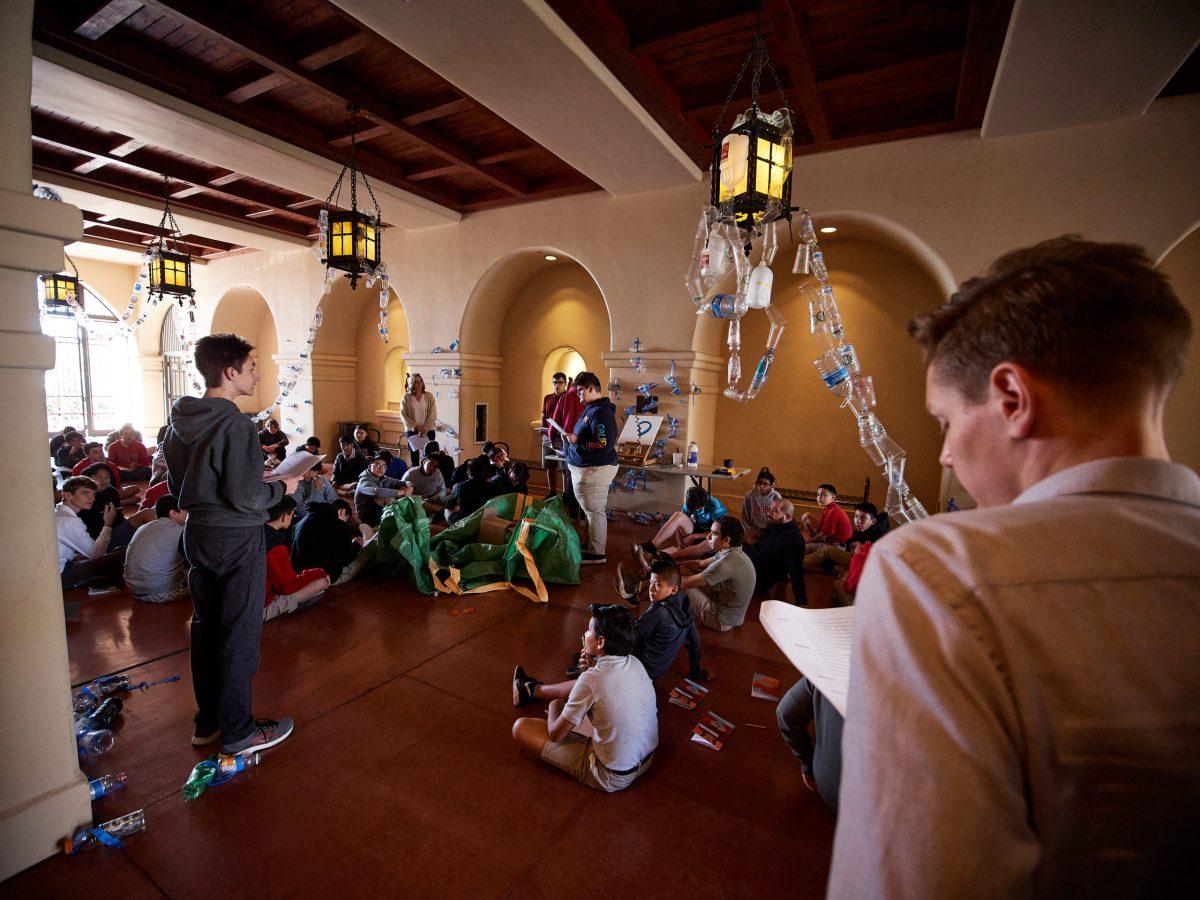By Nick Pecora ’21
THE ROUNDUP
Brophy’s Theatre for Social Change, helmed by student leaders Jackson Bernreuter ’21 and Steven Watson ’21 alongside faculty moderator Ms. Carolyn Wright, is set to begin its second year of work on Brophy’s campus.
The club, which was formed last year by Ryan Breuer ’20 with the help of Ms. Wright, is composed of individuals who have a genuine drive to inspire change and help others.
“Everyone who joins Theatre for Social Change is very passionate about helping people,” Watson said.
The use of theater as a vehicle for activism is certainly not original to this club. This method of activism has evolved from Theatre of the Oppressed, a theatrical form which was pioneered by Brazilian activist Augusto Boal in Brazil during a time of civil unrest in the 1970s.
While its activism is often theatrical in nature, the club is first and foremost a group dedicated to social justice. They use theatre as a vehicle to inspire the change that they seek.
“The goal of the club is more geared toward social justice and producing change than theater, although that is a big part of it,” Bernreuter said.
For example, in addition to their use of theater in activism, the club also works on such projects as creating a website related to the Black Lives Matter movement.
Furthermore, Theatre for Social Change is not strictly limited in their work to theatrical performances that have a beginning, middle, and end. Rather, Watson described the arena of Theatre for Social change as being “anything that is visual that has some sort of performative aspect to it.”
Breuer and Ms. Wright already knew one another from Valley Youth Theatre in Downtown Phoenix, and Ms. Wright was involved with Theatre for Social Change as a theatrical form in her professional career before joining the Brophy faculty.
Therefore, Breuer immediately knew to whom he would bring his idea of forming the Theatre for Social Change club on campus.
The group is careful to form a distinction between speaking for communities and helping certain communities tell their stories, the latter of which the group hopes to accomplish.
“… [W]e on campus can look for groups who have a voice, and it’s not always amplified. So, what can we do to shine a light on that, what can we do to explore it?” Ms. Wright said.
One way in which the club attempted to promote justice through performance was through a Summit workshop during last year’s Summit on Human Dignity in partnership with Advocacy Club.
Dialogue between the club and the Office of Faith and Justice regarding the club’s potential involvement in the 2020 Summit on Human Dignity began very early on during the 2019-2020 school year.
The performance, offered as one of the workshops during the Summit on Human Dignity, was written by Mr. Victor Cervantes ’09, a faculty leader of Advocacy Club who occasionally gives his support to Theatre for Social Change initiatives and projects on campus. He prefers to go by his given name.
The Theatre for Social Change club is already beginning discussions with the OFJ regarding plans to be involved in the 2021 Summit in some capacity. The nature of their involvement is not yet fully known, but there is some certainty regarding the subject matter of the piece, which will again be a collaboration between Advocacy Club and Theatre for Social Change.
“In terms of content of the piece, it’ll definitely center around or be entrenched within racial equity and, specifically, uplifting anti-racism and the dismantling of white supremacy culture,” Mr. Cervantes said.
The creation of this year’s summit piece will involve “as much of the community as possible,” according to Mr. Cervantes.
While many of the club’s specific performances and initiatives for this year have yet to be determined, one area in which the club hopes to be active this year is helping to “amplify” the voices of various minority groups in the community.

